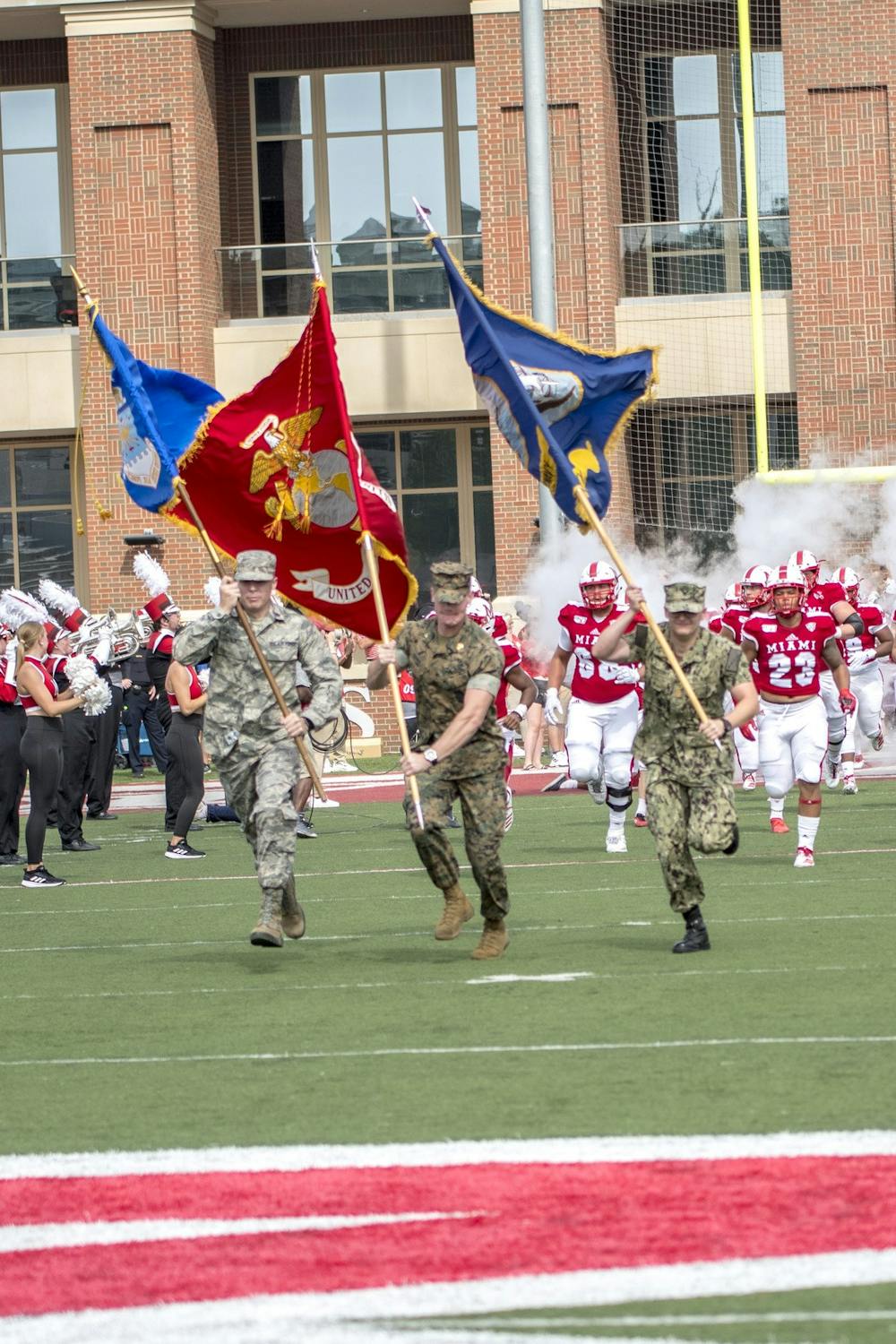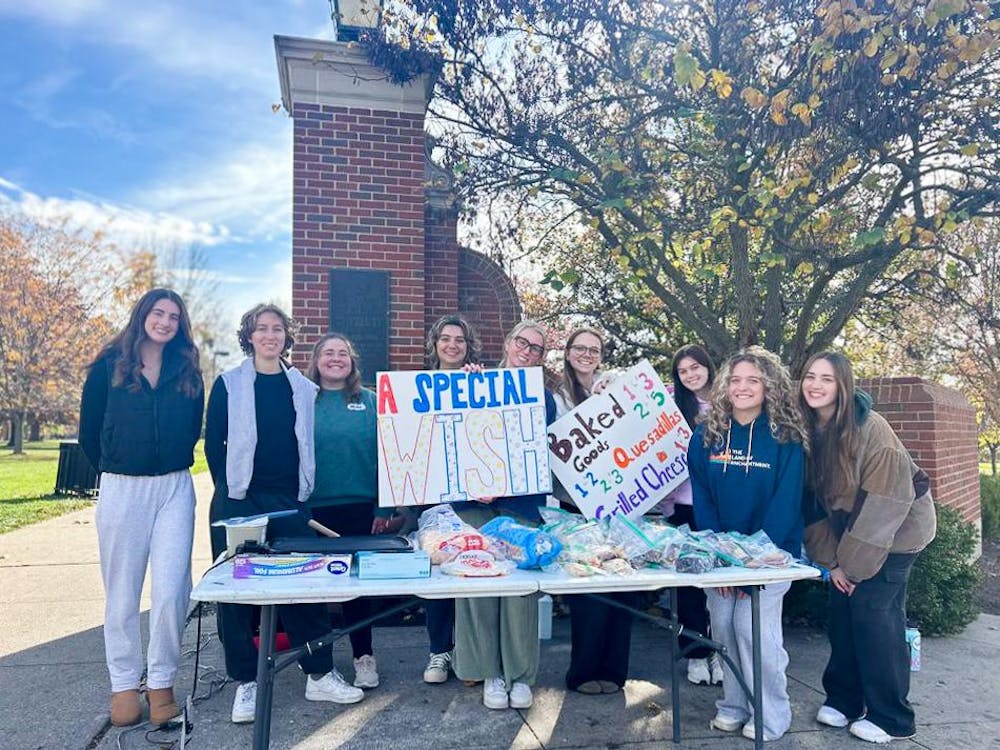As early as their senior year in high school, incoming Miami University students participating in university Reserve Officers’ Training Corps (ROTC) programs have the option to compete for scholarships to help pay for university costs.
Maya Smith, a sophomore psychology and sustainability double major, is enrolled in Miami’s Navy-Marine Corps ROTC program.
“To be in the Navy ROTC, the goal is to pick up a scholarship,” Smith said. “You want the program to say, ‘We think you will be a valuable addition.’”
Students seeking a Navy or a Navy-Marine Corps ROTC scholarship undergo an application process consisting of sending resumes to administrators, attending interviews and undergoing physical and academic testing.
Maya said having what the Navy deems a Tier 1 or Tier 2 major also helps for Navy ROTC students, as 85% of scholarships are given to candidates who fall under the two.
After undergoing the application process in her senior year of high school, Smith received a four-year scholarship from the Navy-Marine Corps, the highest tier scholarship available. According to rotcconsulting.com, about 2,500 qualified Navy-Marine Corps applications are reviewed each year, and about 336 receive scholarships of any kind.
Upon signing her contract, Smith agreed to five years of active duty service within the Marine Corps, a requirement of all scholarship winners.
She must also keep a minimum 2.5 GPA as well as maintain a score of 265 on Marine Corps physical fitness tests. The test consists of pull-ups, push-ups and a three mile run, each individual event is scored out of 100 based on results for a final score. According to military.com, 17-20 year old females like Smith can score a 300, a maximum score, by performing seven pull-ups, 100 crunches in two minutes and by running at least a 21 minute three-mile run.
Other requirements include signing up for Navy ROTC required classes and attending two physical training (PT) sessions from 6 a.m. to 7 a.m. on Tuesdays and Thursdays.
“With college life, you get people asking why you can’t go out all the time,” Smith said. “And I’ll respond with something like, ‘I haven’t worked out today, I have to do that.’ I just feel like you have to be accountable with the United States military – it risks losing your scholarship, which is the reason I’m at college.”
Joe Wright, a sophomore political science and sports leadership & management double major, is in Miami’s Army ROTC program.
Wright signed up for the program during his senior year of high school and was awarded a three-year scholarship after undergoing a similar application process. Upon signing his contract, he will be required to serve four years of active duty or eight of reserve duty.
Enjoy what you're reading?
Signup for our newsletter
Wright came to Miami from Waunakee, Wisconsin. Offsetting some of the costs of a more expensive tuition as an out-of-state student was one of the factors why Wright said he joined the ROTC.
“Going out-of-state [for college] was expensive, so finding a way to pay for it helps,” Wright said. “Anything to help out my parents.”
Army ROTC at Miami requires military science classes along with three PT sessions from 6 a.m. to 7 a.m. throughout the week. Among one of the harder exercises for Army ROTC members is a six mile run while wearing a 35-lb. backpack.
“I wouldn’t say it’s for everyone, but it’s not as hard as everyone thinks,” Wright said. “It really benefits more than people think.”
Alex Burns is a first-year history major, who is also in the Army ROTC program under a three-year scholarship. Burns said he dreamed of joining the military as a child, and as a senior in high school, he couldn’t pass up the opportunity for a scholarship.
“I always wanted to serve,” Burns said. “I feel like a lot of boys and girls at one point think about it. I just thought it would be cool.”
After his application process was over, Burns said transitioning to college and ROTC lifestyle was tricky.
“I think coming in as a [first-year], not used to having the free time you thought you had is difficult,” Burns said. “You have to learn how to be disciplined, focusing on when you have free time and when not to procrastinate is part of the job.”
Burns said after the process was done, he felt at home with ROTC, especially given the pandemic.
“It’s helped me meet another group of people and friends that [I] can hang out with outside of ROTC,” Burns said. “It’s a really friendly environment, and I think that’s why a lot of people do it.”




